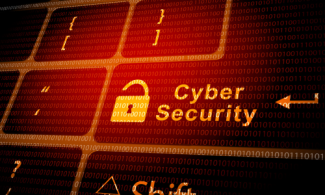
Protecting Your Financial-Self Online: Don’t Fall Prey to Cybersecurity Breaches
In today's digital age, safeguarding your sensitive information is paramount - especially with the rising number of phishing scams. Cybersecurity incidents are becoming more frequent, showcasing the vulnerabilities in our digital infrastructure and the importance of proactive protection measures.
The most common cyber attack, phishing, is a form of online fraud where scammers try to trick you into revealing personal and financial details by posing as trustworthy entities. To help you stay protected review the following essential tips to learn how to recognize and avoid phishing scams – and better protect your personal and financial information.
Steps to Protect Your Personal & Financial Information
- Be Cautious & Wary of Phishing Attempts: Cybercriminals often exploit breaches to launch phishing campaigns. Do not click on suspicious links or share personal information via email.
- Keep software updated: Software applications are continuously being upgraded to protect against malware – ensure you download the most current as it is available.
- Use Strong, Unique Passwords: Employ complex passwords and avoid reusing them across different sites. If necessary, consider using a reputable password manager to keep track.
- Enable Multi-Factor Authentication (MFA): Where possible, activate MFA to add an extra layer of security to your accounts. MFA offers the opportunity to verify your login via text to your cellphone.
- Educate Yourself on Cybersecurity Best Practices: Stay informed about the latest cybersecurity threats and learn how to recognize potential scams.
Additionally, you can:
- Monitor Financial Accounts: Keep an eye on your bank statements and credit reports for any unauthorized transactions.
- Limit Public Wi-Fi Usage: Avoid accessing sensitive information over unsecured networks. If necessary, use a virtual private network (VPN) to encrypt your connection.
Conclusion
The breaches we see in the news serve as a stark reminder of the vulnerabilities inherent in our digital systems. By adopting stringent cybersecurity practices and remaining vigilant, individuals can better protect their personal and financial information from potential threats. Remember, cybersecurity is not just the responsibility of the organizations that hold your information; it's a shared duty that requires active participation from users as well.

